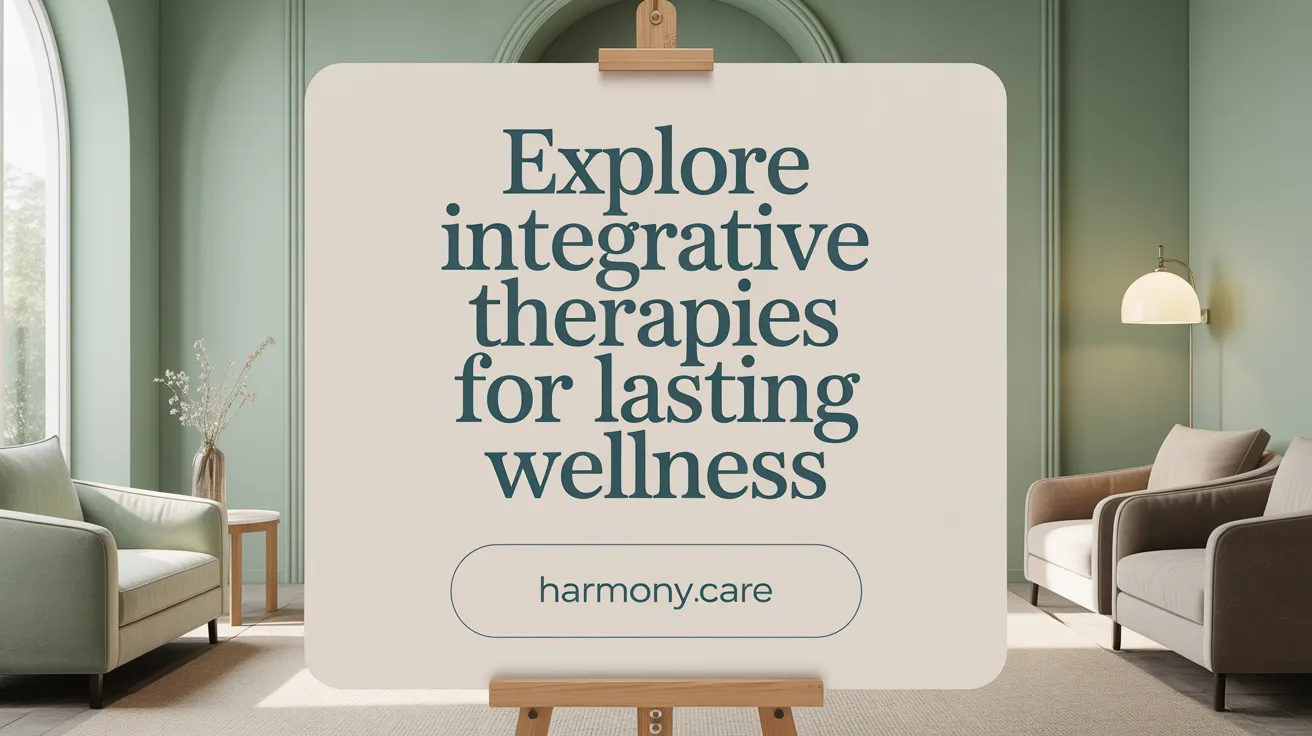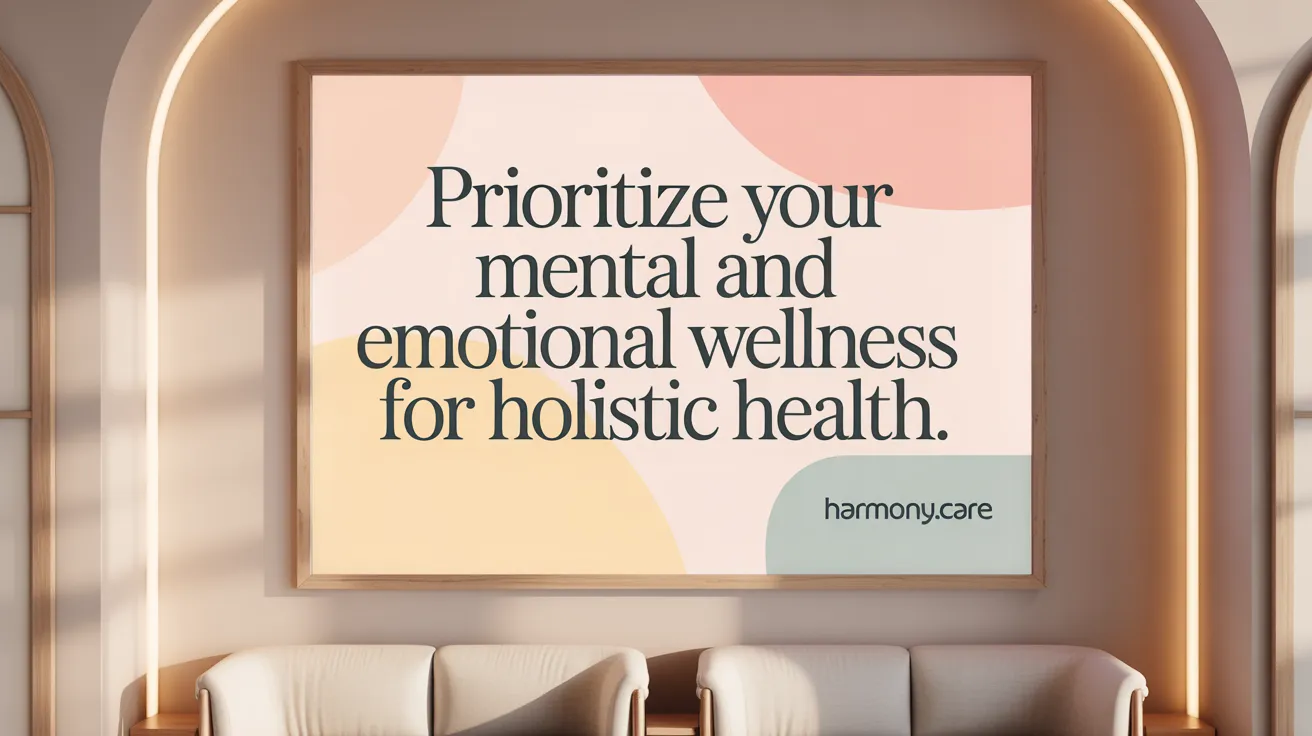Understanding Holistic Women's Health
Holistic women's health is an inclusive approach that considers the complete woman—her body, mind, and environment. This comprehensive perspective focuses on addressing the root causes of health issues instead of merely alleviating symptoms, empowering women to take control of their wellbeing through tailored strategies across all life stages. Combining physical wellness, emotional balance, nutritional health, and social connections forms the foundation for sustainable, vibrant health throughout a woman's lifetime.
Foundations of Holistic Women's Health: The Eight Pillars
What constitutes a holistic approach to women's health?
A holistic approach to women's health involves looking at the whole woman — her body, mind, and environment — rather than focusing on isolated symptoms. This method seeks to identify and address the root causes of health issues, providing care that spans physical, emotional, and lifestyle factors.
What are the core components foundational to holistic women’s health?
The foundation rests on the eight pillars of wellness:
- Physical wellness: Regular movement and exercise to support hormonal balance and overall health.
- Nutritional health: Eating nutrient-dense foods essential for energy, immune and brain function.
- Emotional wellbeing: Managing stress and cultivating resilience.
- Social support: Building meaningful connections and community.
- Spiritual practices: Engaging in meditation, gratitude, or other forms of spiritual growth.
- Intellectual growth: Stimulating the mind through learning and mental challenges.
- Financial security: Managing financial health to reduce stress and support wellbeing.
- Environmental factors: Creating a healthy living environment by reducing toxin exposure.
Lifestyle medicine — encompassing regular physical activity, balanced nutrition, and restorative sleep — underpins these pillars, ensuring the body and mind stay in harmony.
What role does patient education and empowerment play?
Patient engagement and education are central to holistic health, enabling women to understand their bodies and actively participate in their care decisions. This empowerment fosters long-term prevention and personalized care approaches.
How do conventional and alternative therapies integrate?
Holistic women's health blends conventional diagnostics with alternative treatments such as functional lab testing, botanicals, osteopathic manipulative treatment (OMT), and innovative protocols like REGENmax. This integrative model offers comprehensive, individualized care focused on lasting wellness rather than temporary relief.
Health Through Every Life Stage: Customized Care for Women

How do women's health needs change across different life stages?
Women's health needs evolve distinctly through adolescence, reproductive years, midlife, menopause, and older age. In adolescence, essential care includes menstrual education, HPV vaccination, and mental health screening to build a strong foundation. During reproductive years, managing conditions such as PCOS and endometriosis, fertility optimization, and regular reproductive health monitoring become priorities. Menopause and postmenopause require personalized management strategies emphasizing bio-identical hormone replacement therapy, symptom relief, bone and heart health, and cognitive wellness.
Adolescent Health Essentials
Key adolescent health interventions include educating about menstrual cycles, administering HPV vaccines early to prevent certain cancers, and addressing mental health challenges. Establishing healthy habits concerning nutrition, physical activity, and sleep supports long-term wellness.
Reproductive Years Focus Areas
Women in the reproductive phase benefit from managing hormonal imbalances like PCOS and endometriosis, optimizing preconception health, and utilizing lifestyle medicine principles such as nutrient-dense diets and regular movement.
Menopause and Postmenopause Management
This stage focuses on managing symptoms like hot flashes, osteoporosis prevention through weight-bearing exercise and calcium intake, cognitive health maintenance, and cardiovascular risk reduction. Therapies include bio-identical hormones and integrative approaches combining botanicals and lifestyle adjustments.
What preventive screenings are critical at various ages?
Preventive screenings adapt with age. HPV and cervical cancer screenings start around age 21, promoting early detection. Mammograms commence around age 40 to screen for breast cancer. Regular monitoring of blood pressure, cholesterol, and blood sugar is vital across life stages. Colon cancer screening becomes important in midlife, and bone density tests for osteoporosis are essential for older women to maintain skeletal health.
Essential Screening Schedule Overview
| Age Stage | Screening Type | Purpose |
|---|---|---|
| Adolescence | HPV vaccine, Cervical screening | Prevent cervical cancer |
| Early adulthood | Blood pressure, cholesterol | Early chronic disease detection |
| Midlife (40+) | Mammogram, Colonoscopy | Cancer detection and prevention |
| Older age | Bone density tests | Osteoporosis risk management |
Adopting a holistic approach that considers physical, emotional, and social dimensions at every life stage promotes comprehensive women's health and longevity.
Integrative Tools and Therapies Enhancing Women's Wellness

What integrative tools are used in holistic women’s health care?
Holistic women’s health care utilizes a range of integrative tools aimed at uncovering the root causes of health concerns and supporting natural healing. Functional lab testing is often employed to assess hormone levels, thyroid function, and biochemical imbalances. Botanicals and natural supplements such as black cohosh, cranberry, and seed cycling are incorporated to support hormonal balance and reproductive health. Osteopathic Manipulative Treatment (OMT) is used to alleviate musculoskeletal discomfort and improve physical function. Additionally, innovative protocols like REGENmax provide cutting-edge options for promoting tissue regeneration and enhancing sexual wellness.
How do these therapies complement conventional treatments?
These integrative therapies work alongside conventional medicine by addressing underlying issues rather than just symptoms. They help reduce dependency on medications when appropriate, offering supportive care through nutrition, lifestyle changes, and natural supplements. Nutritional counseling assists women in adopting diets that improve hormonal and overall health, while personalized hormone therapy—including bio-identical hormones—offers tailored management of conditions like menopause. Together, these approaches create a comprehensive care plan, empowering women to actively participate in their health journey and achieve better long-term outcomes.
Nutrition, Movement, and Stress Management: Pillars of Daily Wellness

What lifestyle habits support holistic health in women?
Holistic health for women is deeply rooted in daily lifestyle habits. Central to these are balanced nutrition, consistent physical activity, stress management, sleep hygiene, and self-care practices.
A nutritious diet rich in whole foods, including fruits, vegetables, lean proteins, healthy fats, and whole grains, provides essential nutrients that support bodily functions. Regular physical activity, combining cardiovascular exercises, strength training, and flexibility work like yoga or Pilates, promotes cardiovascular health, hormonal balance, and maintains muscle and bone strength.
Stress reduction techniques such as mindfulness, meditation, and yoga help women manage daily stress and regulate cortisol levels. Prioritizing restorative sleep, aiming for 7-9 hours nightly, is equally essential for repair and brain health. Lastly, engaging in self-care activities like spending time in nature, journaling, or taking mindful breaks is vital to maintain emotional and mental wellness.
How do these habits affect hormonal and mental health?
Nutrition and movement play a direct role in balancing hormones and supporting the immune and brain systems. Eating nutrient-dense foods stabilizes blood sugar and nurtures hormone production, easing symptoms related to PMS and menopause (Holistic women's health).
Physical activity enhances serotonin release and reduces anxiety, offering mental health benefits. Meanwhile, techniques to reduce stress lower cortisol—the stress hormone—which when elevated, can disrupt menstrual cycles and exacerbate mood disorders. Good sleep hygiene fosters cognitive clarity and emotional resilience.
Together, these holistic habits empower women to better manage hormonal fluctuations and maintain emotional wellbeing across life stages, encouraging a sustainable and vibrant health journey (Holistic Approach to Women's Health).
Mental and Emotional Wellbeing: Integral to Holistic Care

Why is mental and emotional wellbeing important in women’s holistic health?
Mental and emotional wellbeing play a crucial role in holistic women’s health as they directly influence hormonal balance, immune function, and overall wellness. Chronic stress, a common challenge for many women, can disrupt menstrual cycles, reduce fertility, and worsen menopausal symptoms. This shows the importance of approaching women's health with strategies that manage stress and nurture emotional balance.
What practical techniques support emotional health?
Several effective techniques support emotional health and build resilience. Mindfulness practices and meditation help calm the mind and lower cortisol levels, thereby reducing stress. Yoga and breathing exercises combine physical movement with mental relaxation, aiding both body and mind. Engaging in hobbies and journaling promotes self-expression and emotional processing. Building strong social connections offers essential support and enhances wellbeing. Finally, seeking professional help when needed ensures timely management of mental health concerns.
How does stress specifically impact women's health?
Stress triggers hormonal imbalances by increasing cortisol, which can disrupt menstrual cycles and fertility. It may also intensify symptoms such as mood swings, anxiety, and sleep disturbances during menopause. Hence, effective stress management is vital for sustaining women's long-term health.
Why are social connections important?
Social support strengthens emotional resilience and combats feelings of isolation. Strong relationships contribute to happiness, health, and longevity, underscoring their importance in holistic health and aging well.
Holistic women’s health care integrates these mental and emotional strategies alongside physical approaches, reflecting a complete view of wellness that empowers women to live balanced, healthy lives.
Empowering Women Through Education and Access to Care

How does education and access enhance holistic women's health?
Education plays a pivotal role in empowering women to take control of their health. When women understand their bodies and health conditions, they can recognize early symptoms and make informed decisions about their care. This active participation fosters better health outcomes and supports long-term wellness. For more information on patient education and empowerment in holistic care, see holistic care through life stages, patient education in holistic health, patient active participation.
Access to care is broadened through digital health tools, telehealth, and community programs. These resources enhance health literacy and provide women with support networks, educational materials, and easier access to services regardless of geographical barriers. Such integration ensures women remain informed and engaged in managing their health. Learn about access to integrative women's health, community programs, digital health tools and UC medical plans for women's preventive care, virtual women's health providers like Midi Health.
What qualifications should women seek in holistic healthcare providers?
When selecting providers for holistic women's health care, qualifications are crucial for comprehensive and personalized treatment. Women should look for board-certified medical doctors (MDs) or doctors of osteopathy (DOs) who have specialized training in integrative medicine. Information about qualified integrative health practitioners, board-certified MDs and DOs, collaborative healthcare practitioners can be helpful.
Additionally, licensed naturopathic doctors (NDs) in states where they are credentialed offer expertise in natural and holistic therapies. Collaborative practitioners experienced in women's health ensure that care plans are well-rounded and patient-centric, addressing both conventional and alternative health needs. See Naturopathic doctors in women's health, natural hormone balance, naturopathic telehealth practice and Integrative health specialists, holistic health approaches, functional medicine philosophy.
Long-Term Prevention and Advocacy
Holistic healthcare emphasizes prevention by identifying and addressing the root causes of health issues early. This preventive approach reduces the risk of chronic conditions and supports sustained well-being. Explore topics on long-term prevention in women's health, root causes focus, lifestyle medicine benefits and functional medicine root causes, biochemical variations, chronic illness treatment.
Advocacy and shared decision-making are central, enabling women to voice their health concerns and preferences openly with their providers. This collaborative model strengthens the therapeutic relationship and aligns treatments with each woman's unique goals and values, promoting effective and respectful care. Learn more about patient active participation, patient empowerment, shared decision-making.
Towards Lifelong Holistic Wellness for Women
Adopting a holistic approach to women's health acknowledges the intricate interplay between physical, emotional, intellectual, social, and environmental aspects of wellbeing. By embracing preventive care, personalized therapies, and lifestyle medicine tailored to each life stage, women can proactively support their health journey. Education, mental health support, integrative therapies, and qualified practitioners form the pillars of this comprehensive wellness guide. Ultimately, empowering women through understanding and active participation paves the way for sustained vitality and quality of life throughout their years.
